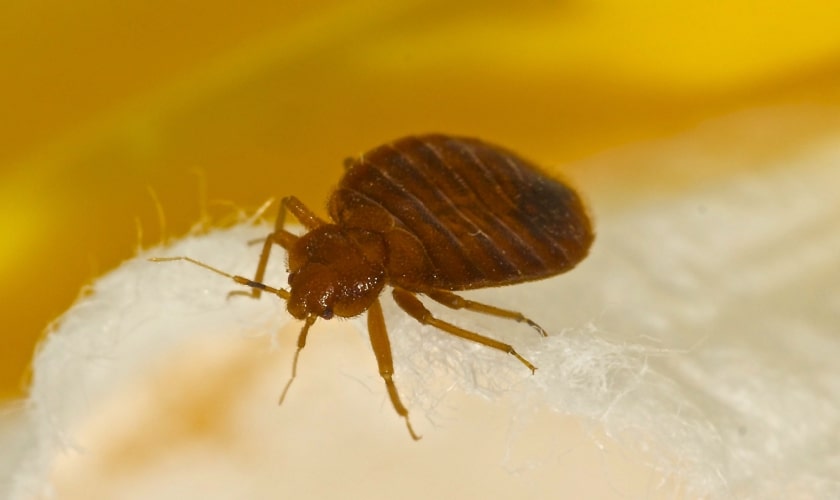Best Kings Pest Control Cincinnati: Premier Pest Control Experts
Best Kings Pest Control Cincinnati: Premier Pest Control Experts
Blog Article
A Breakdown of the Different Sorts Of Insect Control Solutions
In the realm of insect control, a multitude of techniques exist to deal with and battle the existence of unwanted animals. From the traditional use chemical pesticides to much more cutting-edge biological control services, each approach uses unique advantages and limitations. As we navigate via the diverse landscape of insect control remedies, comprehending the ins and outs of each method comes to be vital in determining one of the most effective strategy. Stay tuned as we discover the nuanced globe of parasite control techniques and uncover just how each type plays a distinct function in protecting our settings.
Chemical Pesticides
Chemical chemicals are commonly made use of in insect control to efficiently eliminate a vast array of bugs and various other pests. These chemicals work by targeting the nerves of the pests, interrupting their normal functions, and inevitably bring about their death. Making use of chemical pesticides has actually been a staple in the insect control market for decades because of their effectiveness and fast outcomes.

Nonetheless, it is necessary to use chemical pesticides with caution as a result of their prospective dangerous effects on the atmosphere and non-target varieties. Improper application or overuse of these pesticides can lead to pollution, harm to helpful bugs, and resistance development in pest populaces. It is critical to comply with security guidelines and laws when utilizing chemical pesticides for parasite control.
Biological Control Methods
Thinking about the possible ecological influences and risks related to chemical pesticides, organic control techniques use a more sustainable method to handling insect populaces. Biological control entails using all-natural opponents, such as pathogens, parasites, and killers, to reduce pest populaces. This method is typically a lot more targeted, affecting only the particular insect types while lessening damage to helpful pests, human beings, and the setting.

One benefit of biological control is its long-term efficiency. Once developed, all-natural opponents can aid manage pest populaces continuously without the requirement for duplicated applications of pesticides. Furthermore, organic control is commonly more economical and can help in reducing chemical resistance in pest populaces with time. Overall, biological control approaches offer a environmentally friendly and sustainable option to pest administration.

Mechanical Pest Control
Mechanical bug control involves the physical control or removal of insects to manage their populaces properly. This approach is commonly utilized together with other parasite control methods for detailed insect management. One usual instance of mechanical bug control is using catches to record rodents or insects. These traps can be established in strategic areas where bugs are understood to dwell, helping to lower their numbers.
An additional mechanical method is the usage of barriers such as displays, fences, or webs to obstruct pests from going into specific locations. By Continue literally stopping pests from accessing a place, the chance of invasions or damages can be considerably decreased. Furthermore, hand-operated techniques like handpicking bugs off structures or plants can be reliable for smaller-scale problems.
While mechanical insect control approaches can be labor-intensive, they offer a non-chemical option that can be eco pleasant and sustainable. By targeting bugs straight, mechanical control techniques can assist maintain pest populations in check without depending on chemicals.
Natural Solutions
Making use of all-natural treatments for insect control uses a green and lasting approach to taking care of parasite populaces without resorting to chemical interventions. All-natural solutions include using materials obtained from plants, minerals, or various other normally occurring resources to prevent or get rid of pests.
In addition, necessary oils such as tea tree oil or neem oil have insecticidal buildings that can successfully control parasites while being risk-free for the environment. An additional all-natural solution is introducing beneficial bugs like ladybugs or praying mantises house pest control to your yard to take advantage of harmful bugs. By incorporating these all-natural services right into insect monitoring techniques, individuals can lower their reliance on artificial chemicals and promote a much healthier, much more well balanced ecosystem.
Integrated Bug Management
Integrated Bug Management (IPM) is a detailed technique that combines different strategies to efficiently regulate pest populations while lessening threats to human health and the atmosphere. IPM entails the integration of several parasite control methods such as organic control, habitat control, adjustment of social practices, and the use of resistant plant selections. By utilizing a combination of these methods, IPM intends to lower reliance on chemical pesticides, which can have unfavorable effect on communities and human look at this web-site wellness.
One trick facet of IPM is the emphasis on prevention. By executing procedures to stop pest infestations before they occur, such as preserving appropriate hygiene and securing access factors, the demand for responsive pest control measures is reduced. Monitoring and regular assessments play a critical duty in IPM, permitting for very early detection of insect problems and prompt intervention.
Conclusion
In verdict, the different types of bug control options use a range of alternatives for efficiently managing bug infestations. Organic control methods use natural predators to regulate bugs. Integrated Bug Management incorporates multiple methods for a holistic technique to pest control.
Chemical pesticides are frequently used in insect control to properly get rid of a vast range of bugs and various other parasites.Mechanical insect control entails the physical manipulation or elimination of pests to handle their populaces effectively (Kings pest control cincinnati oh).Utilizing natural treatments for bug control supplies a sustainable and green approach to managing insect populations without resorting to chemical interventions.Integrated Insect Administration (IPM) is a thorough approach that combines various techniques to successfully manage pest populaces while minimizing risks to human health and the atmosphere.In final thought, the different types of insect control services provide a variety of choices for efficiently handling insect invasions
Report this page